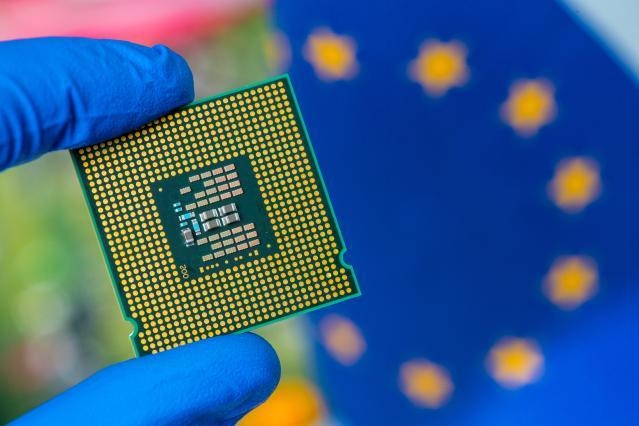The European Parliament aims at boosting EU chips industry
 This week at the European Parliament the Industry, Research and Energy Committee (ITRE) held a public hearing focused on finding new ways to improve the European Union chips industry and finally adopted a legislation aimed at bolstering technological capacity and innovation and increasing investments in the European ecosystem.
This week at the European Parliament the Industry, Research and Energy Committee (ITRE) held a public hearing focused on finding new ways to improve the European Union chips industry and finally adopted a legislation aimed at bolstering technological capacity and innovation and increasing investments in the European ecosystem.
The share of Europe in global production capacity of semiconductors is below 10%, according to a study from the European Parliament, whereas the legislative proposal that the ITRE Committee adopted this week, aims to bring it up to 20%. Moreover, in the analysis made by the Parliament, it has been highlighted that in 2022 the pandemic has revealed long-standing vulnerabilities in global supply chains and the unprecedented shortage of semiconductors is a prime example. It shows what might be in store in the years to come. These shortages have led, among other issues, to rising costs for industry and higher prices for consumers, and have been slowing down the pace of recovery in Europe.
In order to adapt the EU economy to the rising costs of the chips industry, the ITRE Committee adopted two draft bills: one on the “Chips Act” whose purpose is to establish a framework of measures for strengthening the semiconductor ecosystem in the Union and a second one on the Chips Joint Undertaking to increase investments for developing this type of European ecosystem.
“We may not have the enormous financial firepower of the US, but the budget offered by the Commission and Council needs to reflect the seriousness of the challenge”, commented the Rapporteur on the Chips Joint Undertaking, the Bulgarian Eva Maydell, member of the European People’s Party.
The main purpose of the legislation is to secure the EU supply of chips by boosting production and innovation and setting up emergency measures against shortages. In their amendments to the Chips Act, MEPs focused more on next-generation semiconductor and quantum chips. A network of competence centers would be created to address the skills shortage and attract new talent on research, design and production. The legislation would also support projects aiming to boost the EU’s security of supply by attracting investment and building up production capacity.
Dan Nica, Romanian MEP rapporteur on the Chips Act, part of the Social and Democrats group said “we want the EU Chips Act to establish Europe as an important player in the global semiconductors arena. Our goal is to ensure growth in Europe, prepare for future challenges and have in place the right mechanisms for future crises".
What will happen next
Next February, during the opening of the plenary session that will take place in Strasbourg, the mandate for negotiations on the Chips Act will be announced. If there won’t be any request to put the decision to enter into negotiations to the plenary vote, Parliament will be able to start talks with the Council. Parliament will then hold a vote on the Chips Joint undertaking proposal during the same session.